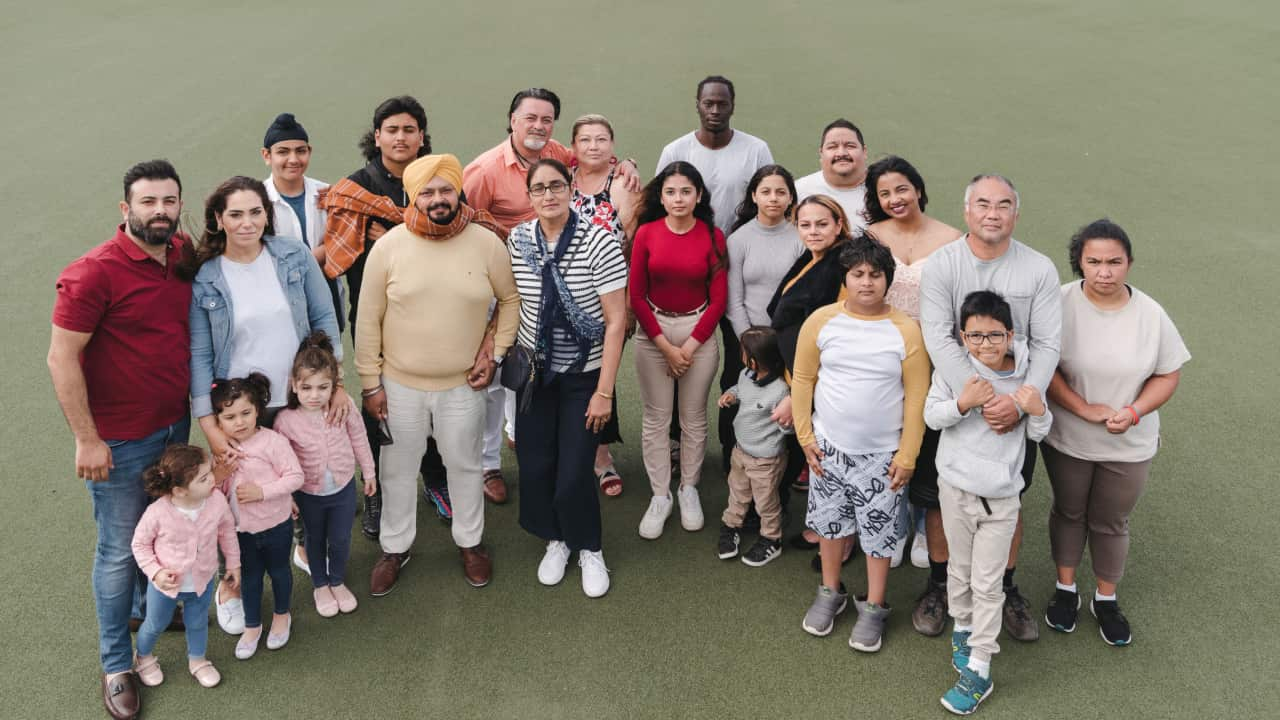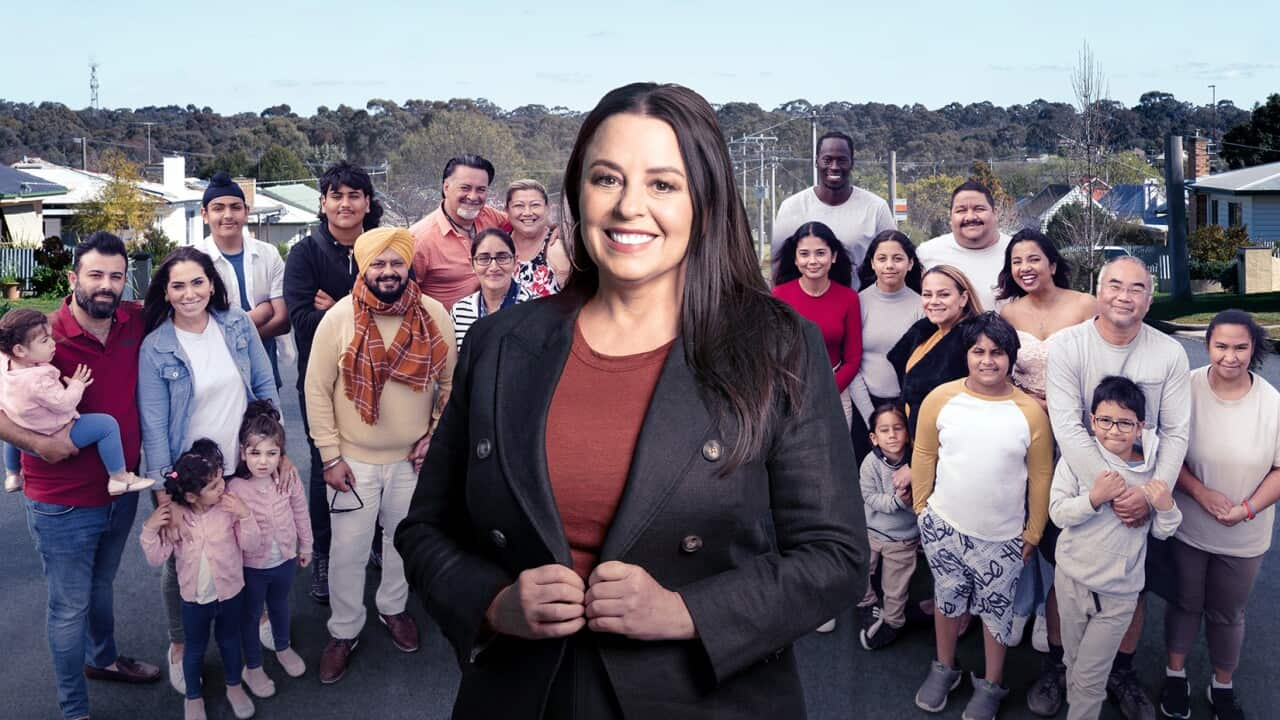—- airs on Wednesdays from 1 November at 7:30pm on SBS and all episodes will be available to stream on after broadcast. —-
If you were given the chance to pursue your passion for food, would you seize this opportunity? What if this meant you had to move to one of
This opportunity was presented to two migrant cooks living in Melbourne as part of an immersive social experiment, documented in the new SBS series, .
Stream free On Demand

Episode 1
Watch Episode 1 now.
M
Watch Episode 1 now.
M
These food-focused city dwellers and their families join six other households in a new council-backed pilot program, which saw them all relocate to the old gold rush town of Maryborough in regional Victoria. A town that was once vibrant, very multicultural and wealthy, Maryborough is now described as being, and this social experiment seeks to challenge perceptions, explore wider opportunities and foster new connections.
We took the social experiment as a challenge and accepted the offer to taste life in regional Australia.
Navdeep Singh, who migrated from India to Melbourne in 2007, moved to Maryborough last year to pursue her dream of running an Indian catering business.
“We took the social experiment as a challenge and accepted the offer to taste life in regional Australia,” Singh tells SBS. At the time that Singh relocated to Maryborough, the local Indian restaurant had already closed and Singh’s husband and son were the only people in town who wore a turban.

Navdeep (far right) and the rest of the Singh family from the new SBS series, Meet the Neighbours. Photo courtesy of Blackfella Films and SBS.
During the documentary, Singh prepared an Indian lunch for the staff of a local school to test whether the locals would accept or reject her culturally diverse food. “Everyone appreciated the food. They were excited to know about the availability of Indian food in town.”
The home cook soon learned that locals did not want to eat Indian cuisine regularly. “A full-time restaurant could be a failure in a small town especially where you do not have the potential customer base.”
Despite this risk, Singh persisted with the social experiment in Maryborough to pursue her food dream and continue to share Indian cuisine with those around her.
Maryborough: a regional town that's a national case study
Although this new SBS series shines a light on Maryborough, there are many other regional towns across Australia that could benefit from this kind of diverse injection. are characterised by ageing populations, where retirees often outnumber children. There are acute shortages of skilled workers and a lack of infrastructure, including affordable housing.
The situation is a stark contrast to the burgeoning, multicultural capital cities of Melbourne and Sydney, where economies and populations are supercharged by the arrival of .
To combat these issues, , just like the one in Maryborough, to attract migrants wanting work or study opportunities.
More people have moved from Australia's capital cities to the regions than from the regions to the capitals in recent decades.
It seems that the attraction of some regional programs is working. In 2020, 43,000 Australians moved to regional areas from capital cities, according to the More people have moved from Australia's capital cities to the regions than from the regions to the capitals in recent decades, resulting in a net internal migration gain for regional areas.
Despite the relocation trend, Meet The Neighbours questions whether new residents will consider staying long-term in a regional town, such as Maryborough after they've moved.

Hector Rosales, pictured, relocated from Melbourne to Maryborough to find work as a chef as part of a new social experiment. Photo courtesy of Blackfella Films and SBS. Credit: Jackson Finter
A location on the edge of change
Hector Rosales, a Melbourne-based chef who was born in El Salvador, joined the social experiment at age 41 to find work. “I wanted to see if I could re-locate and live a more relaxed life, or possibly start a business out there,” Rosales tells SBS.
Although Rosales was out of work in the city, he had no trouble gaining employment in Maryborough. The downside of the town, he explains, "was a lack of food diversity and ‘small town mentality".
“Small town means everyone knows everyone and when new things come to Maryborough there are people who are willing to try new things, and there are people that aren’t.”
If you’re an aspiring chef with a passion for cooking diverse dishes, is there any point in relocating to a regional town if locals only want to eat schnitzels at the pub, just like we see in the series? Or is it worthwhile to gain industry and life experience?
“I think there is a great opportunity for immigrant Australians to go and explore regional areas, as there are still so many people [living there] that want change and want to try new food.”
New chefs are coming in who are bringing flair and diversity to the culinary scene.
In Rosales’ opinion, although Maryborough was fixed in its food tastes, things were slowly changing. “When I cooked a chicken satay special at the pub, it sold out. This was when I knew that there were lots of locals who wanted to try new things.
“We have met some amazing people and there are new chefs coming in who are bringing flair and diversity to the culinary scene.
“Maryborough is beautiful and it will always be a special place for us.”


